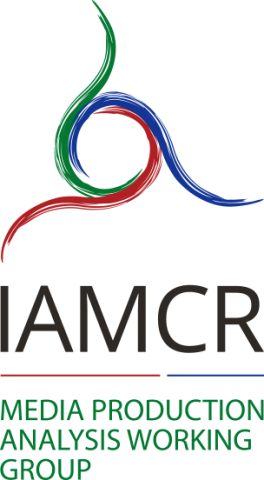
The Media Production Analysis (MPA) Working Group of the International Association for Media and Communication Research (IAMCR) invites the submission of abstracts for IAMCR 2025, which will be held in Singapore from 13 to 17 July 2025, hosted by the Wee Kim Wee School of Communication and Information at Nanyang Technological University.
The deadline for submission is 7 February 2025, at 23h59 UTC.
See the list of all sections and working groups and their remits
See the CfPs of all sections and working groups
IAMCR conferences address many diverse topics defined by our 37 thematic sections and working groups. We also propose a single central theme to be explored throughout the conference with the aim of generating and exploring multiple perspectives. This is accomplished through plenary and special sessions, as well as in many of the sessions of the sections and working groups. The 2025 central theme is Communicating Environmental Justice: Many Voices, One Planet.
Consult a detailed description of the main theme
Following the main theme of the conference, the Media Production Analysis WG invites submissions relating to it as well as papers addressing the following topics (but not limited to):
- Aspects of Media production of Environmental Activism in the Global South.
- Framing Environmental Justice: The Role of Media in Shaping Public Percep- tion.
- The Role of Investigative Journalism. Environmental injustices, evaluating the challenges, ethical considerations.
- Representation of Marginalized Communities in Climate Change Reporting. Par- ticularly those disproportionately affected by environmental degradation and resource exploitation.
- New Media Platforms. New Media Platforms. Social media and other digital platforms are used by grassroots environmental movements to bypass traditional media gatekee- ping and reach broader audiences..
- Media Ethics and Environmental Justice: Reporting on Corporations and Ac-
countability. Ethical dimensions and challenges in balancing factual reporting, corpora- te pressures, and advocacy. - Local Journalism and Environmental Issues. The role unique of regional and local journalism in covering environmental justice.
- Data Journalism. Their potential in uncovering and reporting on injustices.
- The Role of Public Broadcasting Services (PBS) in educating and raising awareness assessing the effectiveness of these platforms in reaching diverse audiences.
- Media, Policy, and Environmental Justice. Analysing the relationship between me- dia influence and policy-making.
- Artificial Intelligence in Environmental Journalism: Opportunities and Ethical
Challenges - Representation of Indigenous Knowledge in Environmental Media Discourse.
- Social Media Algorithms. Do Platforms Promote or Hinder Environmental Justice?
- Media Production Practices and Sustainability in Journalism: An Environmental
Perspective
Communicating Environmental Justice: Many Voices, One Planet reflects the richness and complexity of the landscape of media and communication studies today. We encourage an inclusive and interdisciplinary approach to research and dialogue, fostering collaborations that address the multifaceted challenges facing our planet, our communities, the diverse life forms that share our world, and the various eco-systems on Earth.
We invite all scholars to contribute their unique insights, ensuring that the voices of diverse communities are heard and valued in the ongoing conversation about our planet's future. Together, let’s elevate diverse voices and forge pathways toward a sustainable future.
Not all submissions have to address the central theme.
Guidelines for abstracts
Abstracts must be submitted exclusively through IAMCR’s submission system from 3 December 2024 through 7 February 2025, at 23.59 UTC.
Abstract should be between 800 and 1000 words. It is expected that each person will submit only one abstract. However, no author’s name should appear on more than two abstracts, either individually or as part of any group of authors and authors should not submit more than one abstract to any single section or working group.
Proposals are accepted for both single papers and for panels with several papers (in which several colleagues propose multiple papers that address a single theme). Please note that there are special procedures for submitting panel proposals.
Evaluation criteria
Submitted abstracts will generally be evaluated on the basis of:
- Technical merit
- Readability
- Originality and/or significance
- Use of or contribution to theory
- Relevance to the section and current trends or controversies in its field
- Depth of knowledge of the research, theory and/or literature related to the proposed topic as evidenced in the submission
- Acceptance of proposals may also be conditioned by programme diversity and balance criteria
Statement on use of AI tools
IAMCR does not encourage or condone the use of generative AI tools to prepare abstracts submitted for consideration for our conferences. IAMCR values originality, integrity, and transparency in academic work, and believes that human-authored contributions best support rigorous and innovative scholarship in media and communication research. Should an author choose to use a generative AI tool in the preparation of an abstract, we require that they include a clear statement within their submission disclosing the tool's use. This statement must specify: (1) the name of any AI tool used; (2) how the tool was used in preparing the abstract, and; (3) the reason for using the tool. Failure to disclose the use of generative AI in accordance with these guidelines may impact the evaluation and acceptance of the submission.
Languages
The Media Production Analysis Working Group accepts abstracts in English, French and Spanish, but we would be grateful if the slides and the presentation in the corresponding session could be in English to facilitate the understanding of all attendees.
We also expect the full paper to be provided in English after acceptance.
Deadlines and key dates
The deadline to submit abstracts is 7 February 2025, at 23.59 UTC. For other key dates see https://iamcr.org/singapore2025/keydates. Dates are subject to change.
Contacts
For further information about the Media Production Analysis Working Group, its themes, submissions, and panels please contact the Head:
Concha Edo conchae@telefonica.net
Pedro Jerónimo pj@ubi.pt










